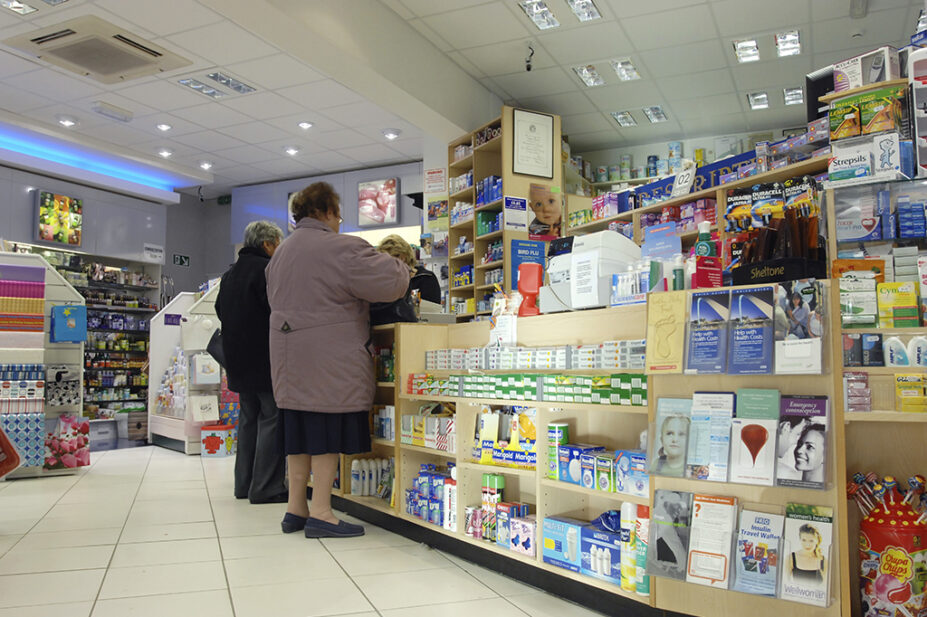
MEDICIMAGE / SCIENCE PHOTO LIBRARY
Proposals to identify medicines that could be reclassified from prescription only (POM) to pharmacy medicines (P) should be extended to look at which drugs could be moved to general sales list, the PAGB has said.
In May 2023, the government published the ‘Delivery plan for recovering access to primary care’, which said that the Medicines and Healthcare products Regulatory Agency (MHRA), Department of Health and Social Care (DHSC) and NHS England will work together to “identify medicines which could be reclassified from ‘available only on prescription (POM)’ to ‘available in a pharmacy (P)’, based on international practice and real-world evidence of safety”.
Michelle Riddalls, chief executive of the PAGB — which represents manufacturers of branded over-the-counter (OTC) medicines, self-care medical devices and food supplements — said that, in 2001, a medicines reclassification alliance was established, which successfully identified several drugs to be reclassified, and she called for the exercise to be repeated.
“A new alliance would be well placed to help identify categories or conditions where there are products that might be suitable for switching [to OTC] and consider how the current process of reclassification can be streamlined,” she said.
“We know that the political will is there: it is detailed clearly in the ‘Delivery plan for recovering access to primary care’, which calls for the MHRA, DHSC and NHS England to work together with the consumer healthcare industry to identify medicines that could be reclassified.
“If the UK is to maintain its position as a world-leading regulator in medicines classification, and people are to have greater access to the medicines they need to self-care, we need to act now.”
Riddalls’ comments follow the publication of a report on 12 July 2023 on the economic impact of OTC products in the UK. The report, commissioned by the PAGB from economics consultancy Frontier Economics, estimated that OTC use saves the NHS £6.4bn each year in avoided prescription and appointment costs.
The calculation was based on results from a US survey, which suggested 82% of people (equating to approximately 50 million people in the UK) would seek alternative treatment if OTCs were not available. By preventing these people from seeking NHS treatment by using OTCs, this resulted in savings of approximately £2.7bn in prescription costs alone, the PAGB claimed.
The report also estimated that greater OTC use could save the NHS at least £1.7bn per year if at least 25 million GP appointments and 5 million A&E visits were replaced by self-treatment with OTC products (assuming a GP appointment costs £39 and an A&E visit costs £138).
It added that the reclassification of medications from POM to OTC status could increase OTC use, generating further NHS savings and economic benefits.
The report said there was evidence of a reduction in NHS prescriptions and appointments following the switch of simvastatin from POM to P in 2004.
However, it also acknowledged that accurately predicting future benefits from reclassification was “challenging” and that to determine the potential benefits of future reclassifications, a comprehensive analysis would need to be conducted on specific drugs being considered for switch.
In 2018, NHS England published guidance for clinical commissioning groups on reducing the number of prescriptions for medicines that are available OTC. At the time, Simon Stevens, then chief executive of NHS England, said this would save the NHS £100m each year, although figures revealed by the government in January 2019 showed that NHS spending on OTC items in England fell by £25.9m in the year to January 2019.
Responding to the PAGB’s report and comments, a DHSC spokesperson said community pharmacies already provided healthcare advice and support for self-care, which included the sale of OTC medicines.
“We are launching ‘Pharmacy First’, a national service backed by £645m from the government, to enable community pharmacies to supply prescription-only medicines for seven common conditions without the patient needing to see a GP, and to support more blood pressure checks and oral contraception consultations,” they added.
“This could mean 10 million GP appointments prevented a year.”


